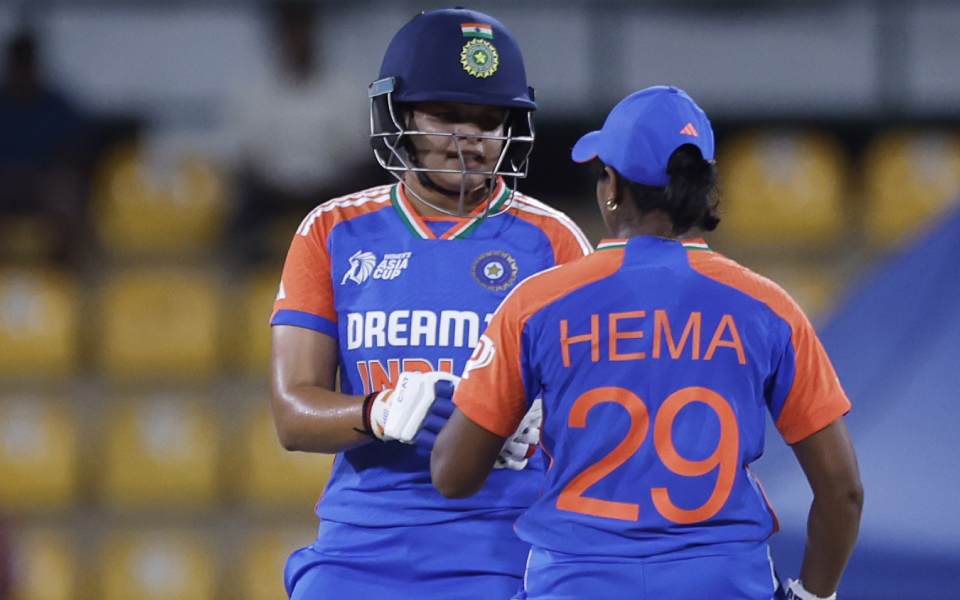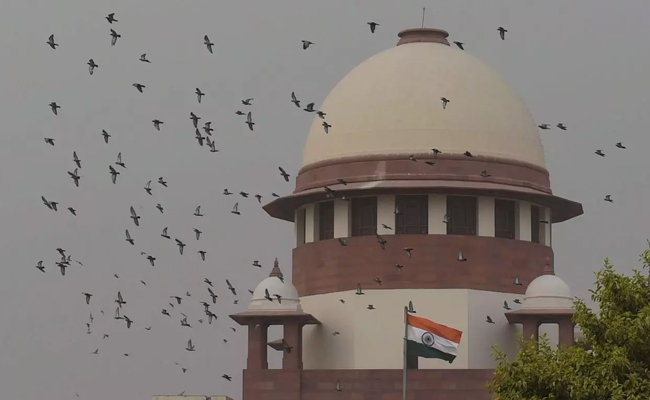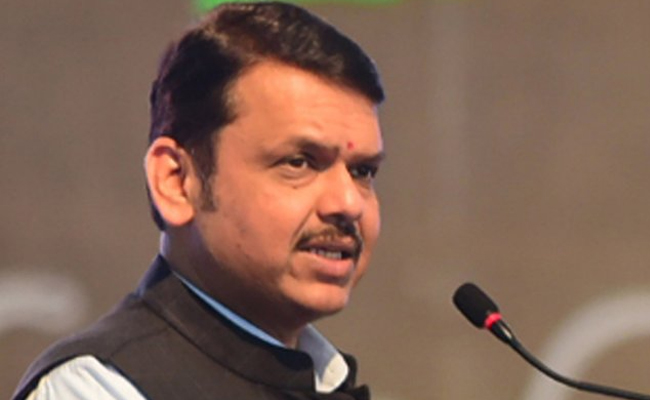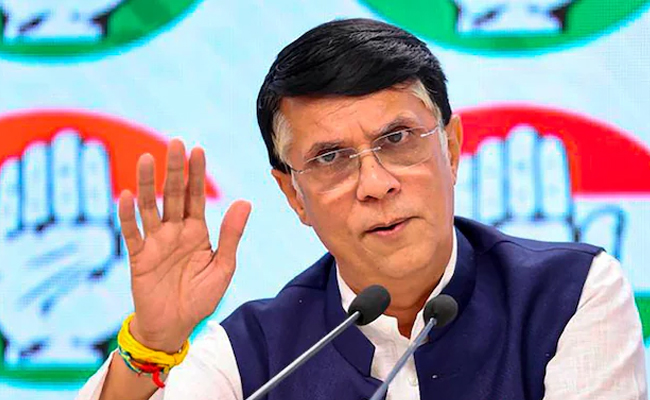Dambulla, Jul 23: Explosive opener Shafali Verma slammed a career-best 48-ball 81 as defending champions India thrashed minnows Nepal by 82 runs in their final group match to confirm their semifinal spot at the Women's Asia Cup T20 tournament here on Tuesday.
With India shuffling the batting order, Shafali and Dayalan Hemalatha (47) opened the innings and gave India a flying start after stand-in skipper Smriti Mandhana won the toss and opted to bat.
The opening duo smashed its way to 122 in 14 overs to lay the foundation.
Jemimah Rodrigues then hit unbeaten 28 off 15 balls, including three fours in the final over, to take India to a solid 178 for three.
Nepal needed to achieve the target in or under 10 overs to surpass Pakistan on net run rate and qualify for the semifinals but they could only manage 96 for nine in their 20 overs, thanks to some superb bowling from the in-form Indian attack.
Deepti Sharma (3/13) was the most successful bowler for India as she snapped three wickets, while her spin colleague Radha Yadav (2/12) and seamer Arundhati Reddy (2/18), playing in place of a rested Pooja Vastrakar, snapped two each.
Pakistan, thus, became the second team to qualify for the semifinals from group A.
It proved to be a tough chase for Nepal as they kept losing wickets at regular intervals to slip to 52 for 4 in 10.2 overs with seamer Arundhati cleaning up both the openers -- Samjhana Khadka (7) and Sita Rana Magar (18).
Renuka Singh (1/15) then dismissed Kabita Kunwar (6), while Radha removed Indu Barma (14).
Deepti then got into the act, getting rid of Rubina Chhetry (15) and Kabita Joshi (0) and then removed Puja Mahato (2) with a direct throw.
Dolly Bhatta (5) became the second victim of Radha, while a caught and bowl effort helped Deepti dismiss Kajal Shrestha (3) to claim her third wicket.
Earlier, Shafali literally toyed with the bowlers, using her flicks to good use as 12 fours and a maximum flew from her blade.
Hemalatha struggled a bit but chugged along with her experienced partner as the Nepalese bowlers toiled in vain.
The openers racked up 50 in the powerplay and continued to make the bowlers pay.
Shafali was particularly harsh on medium pacer Kabita Joshi (1/36), smashing her for five boundaries, while off-spinner Sabnam Rai (0/41) too was sent across the line a couple of times.
The dashing opener smacked spinner Rubina Chhetry (0/14) over deep mid-wicket for her first six in the seventh over before picking up another four with a slog-sweep. She completed her fifty in 26 balls in the eighth over.
Hemalatha, who was finding it difficult to get the middle of the bat, then clobbered Joshi for a straight six as India reached 91 for no loss at the halfway stage.
Nepal had an opportunity to break the stand in the 12th over by left-arm spinner Sita Rana Magar (2/25) but seamer Indu Barma (0/29) spilled a regulation catch off Hemalatha at the boundary line.
The batter, however, was caught by Rubina after a bit of a juggle off the same bowler as India lost their first wicket with the team at 122 in 14 overs.
Hemalatha struck five fours and a six in her 42-ball innings.
Shafali continued to punish the bowlers, slamming two more fours off Barma but Sita Rana finally got rid of the opener with a tossed up delivery as the keeper did the rest.
Joshi then trapped S Sajana (10) but Rodrigues swelled the innings with a little cameo.
Let the Truth be known. If you read VB and like VB, please be a VB Supporter and Help us deliver the Truth to one and all.
Ballia (UP) (PTI): A pastor was arrested on Monday from the Sikandarpur area for allegedly inducing religious conversion with promises of money and jobs and hurting religious sentiments, an officer said on Monday.
Acting on a complaint by Gautam Gaur of Jalpa Chowk in Sikandarpur town, police registered a case on Sunday night against Jose Thomas, 47, a resident of Patna's New Pataliputra Colony, under relevant provisions of the BNS and the Uttar Pradesh Prohibition of Unlawful Conversion of Religion Act.
According to the complaint, Thomas was found at a house in Ward No. 5 here, allegedly addressing 15-20 women and children, promoting conversion to Christianity and making objectionable remarks about Hindu deities while offering inducements, police said.
The police arrested the accused on Monday morning, Superintendent of Police Omvir Singh said.
He said police have recovered 124 religious books, a music system, three microphones and other items from his possession.
According to the police, Thomas, who is originally from Patna, was currently residing in Karikom, Kaddithara, in Kerala, and he was in Ballia for conversion purposes.





